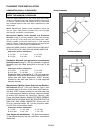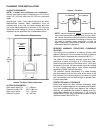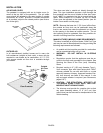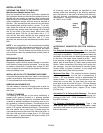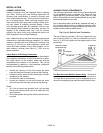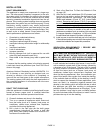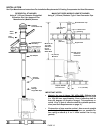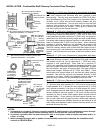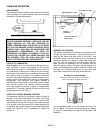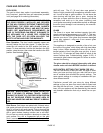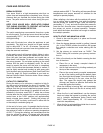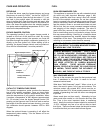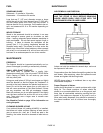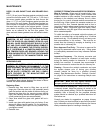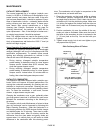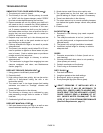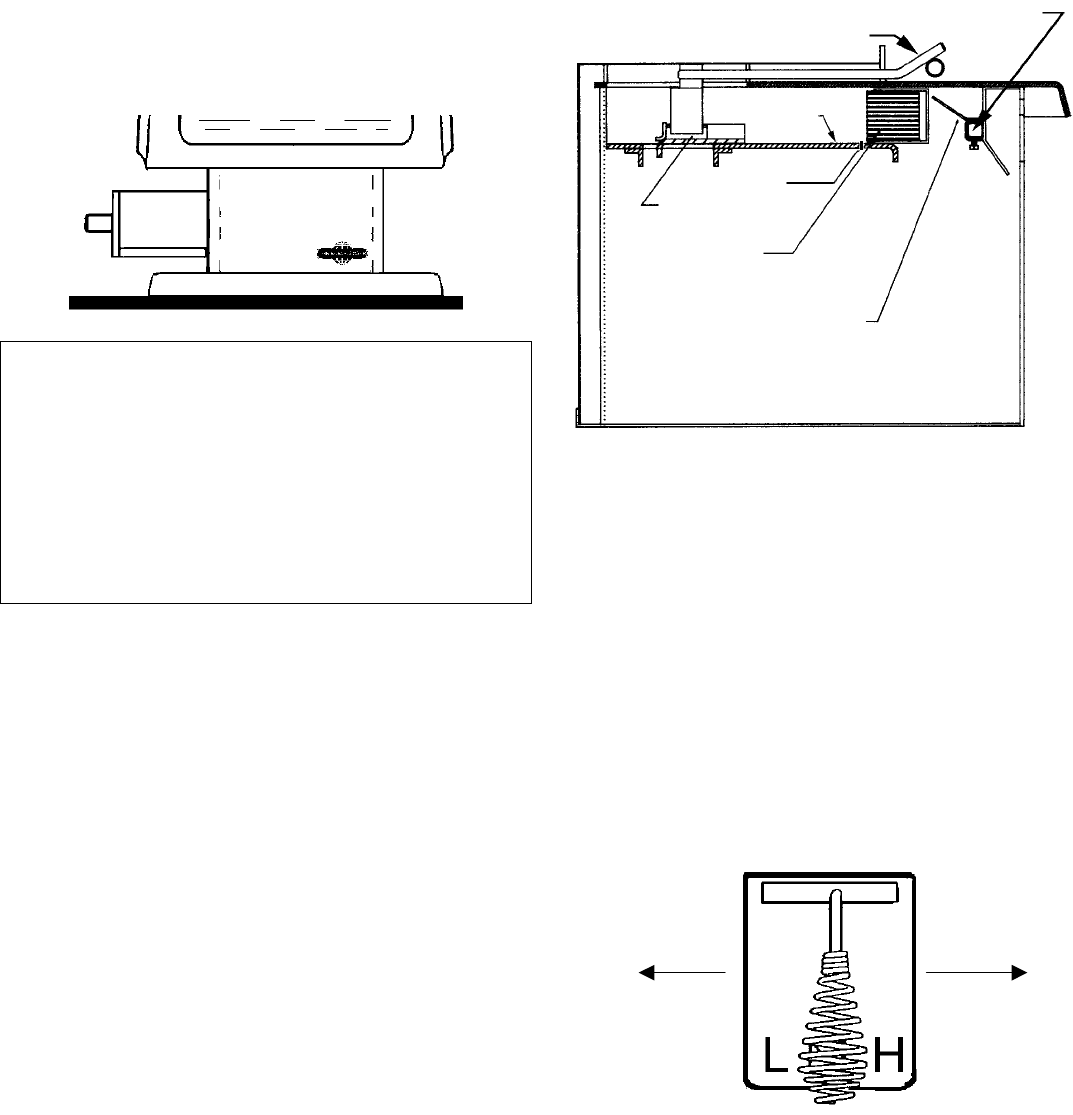
CARE AND OPERATI0N
PAGE 14
ASH DRAWER
The large ash drawer located on the left side of the ped-
estal is designed to make cleaning easier by containing
the ashes in a removable drawer.
WARNING: DO NOT OPERATE THIS STOVE WITHOUT
THE ASH DRAWER PROPERLY INSTALLED AND SE-
CURED (SEALED), AS THIS WILL PRODUCE EX-
TREME TEMPERATURES, RESULTING IN OVERFIR-
ING. THE ASH DRAWER GASKET PROVIDES AN IM-
PORTANT SEAL, AND MUST BE MAINTAINED (SEE
MAINTENANCE REQUIREMENTS ON PAGE 19).
OVERFIRING CAN RESULT IN DAMAGE TO THE AP-
PLIANCE OR A HOUSE FIRE. OPERATION WITH THE
ASH DRAWER OPEN OR AJAR, NULLIFIES THE
SAFETY LISTING AND VOIDS THE WARRANTY.
CATALYTIC COMBUSTOR
How it works: From 5 to 30 percent of the chemical en-
ergy contained in every log escapes up the chimney
when wood is burned in a conventional stove. The cata-
lytic combustor is designed to make use of this energy,
converting it into useful heat as it lessens chimney creo-
sote build-up and air pollution. The catalytic combustor
consists of a durable temperature resistant ceramic com-
position, which is extruded into a cellular, or honeycomb,
configuration. After extrusion, this ceramic monolith is
fired and then covered with a noble-metal catalyst. When
wood smoke contacts this catalyst, chemical changes
occur that causes the smoke to ignite at temperatures
around 600° F. Normally, smoke will ignite and burn only
at temperatures around 1000° F.
CATALYTIC BYPASS DAMPER CONTROL
The operating handle of your Bypass Damper Control is
located on the front of the Stove Flue Collar. By moving
the Bypass Damper Control the operator can route the
exhaust either through the Catalytic Combustor (pushed
in) or directly up the flue (pulled out). When starting a fire
or refueling, the bypass damper control handle should be
pulled out. Once the fire is established it should be
pushed in.
PRIMARY AIR CONTROL
The primary combustion air delivery is controlled by the
Primary Air Control Assembly. The control handle is lo-
cated on the lower right side (front) of the stove - see
illustration below. The heat output can be controlled by
sliding the handle to a higher or lower heat output set-
ting. The fuel, the amount of heat and burn times de-
sired, the type of installation are all variables that will
affect the control setting. The same control settings in a
variety of installations will produce different results. You
will need to try different settings so you can learn how
much heat to expect and how long the fire will burn.
Primary Air Control Handle
Slide the control to the left for a lower burn
rate, to the right for a higher burn rate.
LOW HIGH
You will generally want to set the primary air control on
low or medium. The stove is safe burning on any setting
as long as combustibles are kept at the specified safe
distances.
Ash
Drawer
Secondary Air Tube
Bypass Damper Control
Damper
Door
Positioning
Stops
Tunnel Baffle
Catalytic
Combustor
Catalyic Combustor
Retainer Clip



